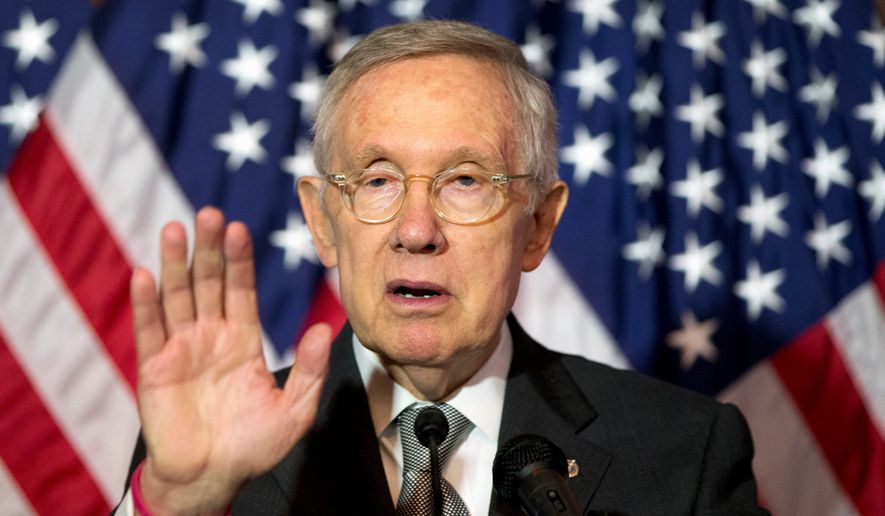The White House said Tuesday that foreign hacking into U.S. voter databases won’t affect the outcome of the presidential election, while House Democrats asked the FBI to investigate a possible connection between Republican presidential nominee Donald Trump and suspected hacks by the Russian government.
White House press secretary Josh Earnest said the U.S. election system, with more than 9,000 state, county and local jurisdictions counting ballots, is too fragmented to be vulnerable to a cyberattack that could change the course of history.
“I think people can have a lot of confidence in the election system, in part because it’s not centralized,” Mr. Earnest said.
But in a letter to FBI Director James B. Comey, Democratic lawmakers cited Mr. Trump’s praise of Russian President Vladimir Putin and policy positions they said could benefit Russia as warranting an investigation.
“Serious questions have been raised about overt and covert actions by Trump campaign officials on behalf of Russian interests,” the lawmakers wrote. “It is critical for the American public to know whether those actions may have directly caused or indirectly motivated attacks against Democratic institutions and our fundamental election process.”
The letter was signed by the ranking Democrats on the House Oversight and Government Reform, Judiciary, Foreign Affairs and Homeland Security committees.
SEE ALSO: Election systems hacked in Illinois, Arizona: ‘The FBI is very much worried’
Mr. Comey said Tuesday the agency is preparing to deal with any potential cyberattacks taken against the nation’s election process.
“It won’t surprise you that I’m not going to give an answer that touches on any particular matter we’re looking at,” Mr. Comey told attendees at a conference hosted by digital security firm Symantec.
The FBI issued a “flash” alert Aug. 18 urging states to contact their Board of Elections if they suspect a breach. FBI officials confirmed this week that there have been two breaches of elections systems, in Illinois and in Arizona.
Russia has been accused of hacks into the Democratic National Committee and the Democratic Congressional Campaign Committee, possibly in a scheme to interfere with the U.S. presidential elections.
The hack of the DNC resulted in WikiLeaks publishing embarrassing emails that showed DNC officials plotting against Democratic presidential candidate Sen. Bernard Sanders in an effort to help Hillary Clinton, who later won the nomination.
The publication of the emails at the start of the Democratic National Convention in Philadelphia last month prompted the resignations of several top DNC officials, including Rep. Debbie Wasserman Schultz, who stepped down as DNC chair.
To further the case against Mr. Trump, they noted his quip that Russia should hack into former Secretary of State Clinton’s email to find the more than 30,000 message she permanently erased from her time at the agency.
They also cited reports that the former chairman of the Trump campaign, Paul Manafort, took payments from a pro-Russian political group in Ukraine between 2007 and 2012.
The letter was singed by Rep. Elijah E. Cummings of the House Oversight and Government Reform Committee, John Conyers Jr. of the Judiciary Committee, Eliot L. Engel of the Foreign Affairs Committee and Bennie G. Thompson of the Homeland Security Committee. because the patchwork of state voting systems is too fragmented to be rigged, the White House said Tuesday.
Senate Minority Leader Harry Reid, Nevada Democrat, also asked the FBI Monday to investigate evidence suggesting that Russia could be trying to manipulate voting results in November. Mr. Reid told Mr. Comey that the threat of Russian interference “is more extensive than is widely known and may include the intent to falsify official election results.”
The White House said Republicans in Congress are preventing the U.S. from being more effective at blocking all kinds of cyberattacks, including those on election systems.
“We’re aware of the evolving nature of this threat,” Mr. Earnest said. “And we’ve taken the kinds of appropriate steps that the American people would expect their government to take to ensure that the American people are protected. There is, however, more that we can do, and more that we would like to do if Republicans in Congress were willing to do their job. But so far, they haven’t been.”
Republican lawmakers also have called for greater cybersecurity after the administration was embarrassed by a series of high-profile hacks of federal personnel records.
Hackers believed to be Russian breached the voter databases in Illinois and Arizona earlier this summer, affecting up to 200,000 records in Illinois.
The FBI is investigating how hackers compromised the personal information of voters. Law enforcement officials said both of the systems are not connected to the internet, reducing the chance of hackers changing election results this November.
The Illinois database included voters’ names, addresses, gender and date of birth.
The FBI alerted Arizona officials in late May that there was a credible cyberthreat to the voter registration system, prompting state officials to take the statewide voting registration system offline.
Homeland Security Secretary Jeh Johnson said earlier this month that the federal government should consider designating the U.S. election process as “critical infrastructure” to give the voting system greater federal protection against cyberattacks.
“We are actively thinking about election cybersecurity right now,” he told reporters at a breakfast hosted by The Christian Science Monitor.
DHS currently handles 16 sectors with the designation of “critical infrastructure,” including transportation, communications, financial services, nuclear reactors and the defense industry.
“I do think we should carefully consider whether our election process is critical infrastructure,” Mr. Johnson said.
But some officials worry that it could lead to federalizing election systems. Georgia Secretary of State Brian P. Kemp told the website NextGov recently that he’s concerned “whether the federal government will subvert the Constitution to achieve the goal of federalizing elections under the guise of security.”
• Dave Boyer can be reached at dboyer@washingtontimes.com.
• S.A. Miller can be reached at smiller@washingtontimes.com.




Please read our comment policy before commenting.